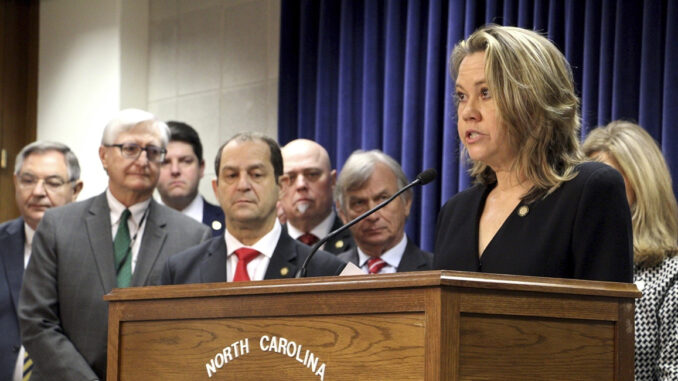
RALEIGH — The North Carolina Senate has introduced a compromise bill on K-12 public school calendar flexibility after more than two dozen bills seeking changes to current laws were filed this legislative session.
Twenty-two bills have been filed in the House and five in the Senate, most applying to individual school districts. Two bills, Senate Bill 103 and House Bill 121, would apply to all school districts across the state.
Senate Bill 754 was filed by Sen. Amy Galey (R-Alamance).
“Finding compromises like this isn’t always easy, but this bill is the culmination of good-faith efforts from stakeholders and legislators,” Galey said in a press release. “With the evolution of the school choice landscape, as well as North Carolina becoming the fifth most popular state for travel and tourism, it’s time to update and adapt our school calendar law.”
Notably, Senate Leader Phil Berger (R-Eden) is one of the primary sponsors.
“This balances the desire of some school districts to start the school year earlier while still supporting our local businesses dependent on summer tourism,” Berger said in the release. “We must take the appropriate steps to hold school districts that break the law accountable.”
In 2023, Berger told North State Journal he did not see a need to alter the calendar law.
The state’s current calendar law dictates the start of the school year as “no earlier than the Monday closest to August 26” and requires the end of classes no later than “the Friday closest to June 11.”
Galey’s bill outlines two calendar options, with the first option being the opening and closing dates already in state statute.
The second would permit an earlier start date no earlier than the first Monday closest to Aug. 19, provided the semesters have equal days. The second option would end the school year no later than the “Friday immediately preceding the last Monday in May,” which would end the school year before Memorial Day.
Several districts in recent years have ignored the calendar law, with their boards adopting various opening and closing dates independently. That activity has not gone unnoticed by lawmakers, and Galey’s bill includes compliance enforcement.
Under the bill, local boards of education would be required to annually report their school start and end dates to the state superintendent. If a school district is found to be noncompliant, the State Board of Education can direct the district’s school board to fix its calendar.
If enacted, failure to comply with calendar law would result in withholding of central office administration funds from the noncompliant district.
The legislation defines noncompliance as adopting resolutions or policies that deliberately avoid following the calendar requirements.
Additionally, the bill would allow any resident or business within a school administrative unit to bring legal action against a noncompliant school board. Courts would be allowed to issue declaratory judgments, provide injunctive relief, award attorneys’ fees and impose civil penalties up to $10,000.
The bill would be effective immediately upon passage and apply to the 2025-26 school year.


